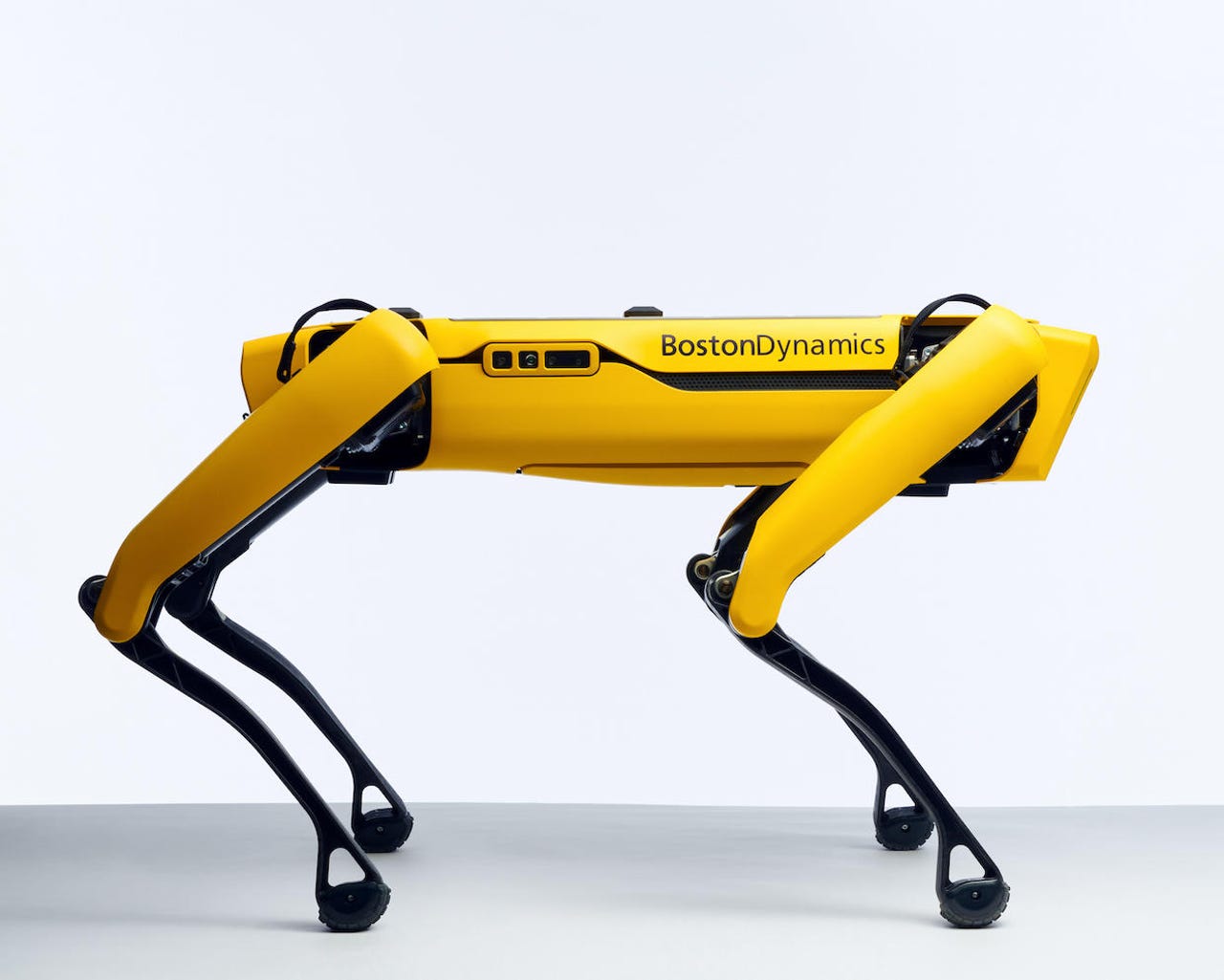Boston Dynamics: We won't weaponize our robots and neither should our customers


Boston Dynamics, the formerly Google-owned firm behind the Spot robot dog and its humanoid equaivalents, has published an open letter vowing to counter attempts by buyers to weaponize its products.
The company released the pledge, saying it was worried by recent "makeshift efforts" by people to weaponize commercially available robots. Several other robotics firms have signed the commitment.
The firm doesn't mention which efforts it is worried about, but one example of this trend, as Vice reported in July, is shown in a video on YouTube, where a robot dog is rigged up with a gun and is shooting at targets.
"Robots should be used to help, not harm. We prohibit weaponization, while supporting the safe, ethical, and effective use of robots in public safety," Boston Dynamics said in a blogpost.
Artificial Intelligence
The company's open letter highlights that consumers' trust in robots has waned after seeing weapons combined with autonomous and remotely controlled robots.
Also: The White House passes an AI 'Bill of Rights' that attempts to put your concerns at ease
Other companies that have signed the commitment are Agility Robotics, ANYbotics, Clearpath Robotics, Open Robotics, and Unitree Robotics.
In a statement to Axios, Boston Dynamics CEO Robert Playter said: "We are concerned about recent increases in makeshift efforts by individuals attempting to weaponize commercially available robots... For this technology to be broadly accepted throughout society, the public needs to know they can trust it. And that means we need policy that prohibits bad actors from misusing it."
The company doesn't say how it would prevent buyers from weaponizing its robots, beyond its terms and conditions of sale, but it is making a statement that it is against that application.
"Untrustworthy people could use them to invade civil rights or to threaten, harm, or intimidate others. One area of particular concern is weaponization. We believe that adding weapons to robots that are remotely or autonomously operated, widely available to the public, and capable of navigating to previously inaccessible locations where people live and work, raises new risks of harm and serious ethical issues," Boston Dynamics says in the open letter.
"Weaponized applications of these newly-capable robots will also harm public trust in the technology in ways that damage the tremendous benefits they will bring to society. For these reasons, we do not support the weaponization of our advanced-mobility general-purpose robots. For those of us who have spoken on this issue in the past, and those engaging for the first time, we now feel renewed urgency in light of the increasing public concern in recent months caused by a small number of people who have visibly publicized their makeshift efforts to weaponize commercially available robots."
Google bought Boston Dynamics in 2013 and then, shortly after Google parent Alphabet was created in 2015, Alphabet put the company up for sale and sold it in 2017 for about $500 million to Japanese investment firm SoftBank, which was on a massive spending spree at the time.
In 2018, Google-owned AI frontrunner DeepMind was among 150 tech companies, along with Elon Musk, that signed a pledge against killer robots. Musk had previously called on the UN to ban killer robots.